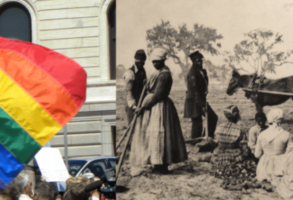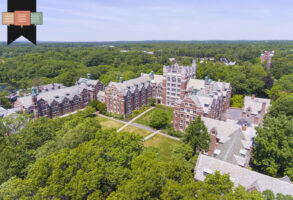
Published October 20, 2021
There can be few things that indicate what a society thinks about the purpose of being human more eloquently than its views on marriage. A recent case in point is a guest essay in the New York Times: “Divorce Can Be An Act of Radical Self Love” by Lara Bazelon, a professor at the University of San Francisco School of Law. Clear, concise, and deeply personal, it offers an eloquent glimpse of what our culture’s ruling class considers to be its priorities for human fulfillment: responsibility to self-fulfillment, first, last, and always.
The burden of the piece is that the author’s divorce is good for her because it has freed her to pursue her own path and arrange the priorities of her life—and the natural dependency of her children upon her—in a manner that allows her to pursue her dreams. She couches this in the language of self-love.
The talk about children often being better off due to divorce pulls on the emotions, as some children do grow up in horribly abusive homes. But it seems that was not her situation at all. When she uses the powerful imagery of “shards” of the nuclear family harming children, she does not draw from that the conclusion that competent parents have a responsibility to make the family work. Instead, the tenor of her argument is this: My ambitions are central and everything else, every other relationship in which I find myself, even that to my children, must be constructed in relation to that fact. Thus, if there is a positive effect on children, it is at best a collateral benefit derived from ending something she and her husband had failed at, not her primary motivation.
Click here to read the rest of this piece at WORLD Opinions.
Carl R. Trueman taught on the faculties of the Universities of Nottingham and Aberdeen before moving to the United States in 2001 to teach at Westminster Theological Seminary in Pennsylvania. In 2017-18 he was the William E. Simon Visiting Fellow in Religion and Public Life in the James Madison Program at Princeton University. Since 2018, he has served as a professor at Grove City College. He is also a fellow at the Ethics and Public Policy Center and a contributing editor at First Things. Trueman’s latest book is the bestselling The Rise and Triumph of the Modern Self. He is married with two adult children and is ordained in the Orthodox Presbyterian Church.
Carl R. Trueman is a fellow in EPPC’s Evangelicals in Civic Life Program, where his work focuses on helping civic leaders and policy makers better understand the deep roots of our current cultural malaise. In addition to his scholarship on the intellectual foundations of expressive individualism and the sexual revolution, Trueman is also interested in the origins, rise, and current use of critical theory by progressives. He serves as a professor at Grove City College.










